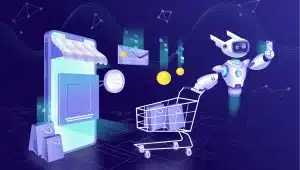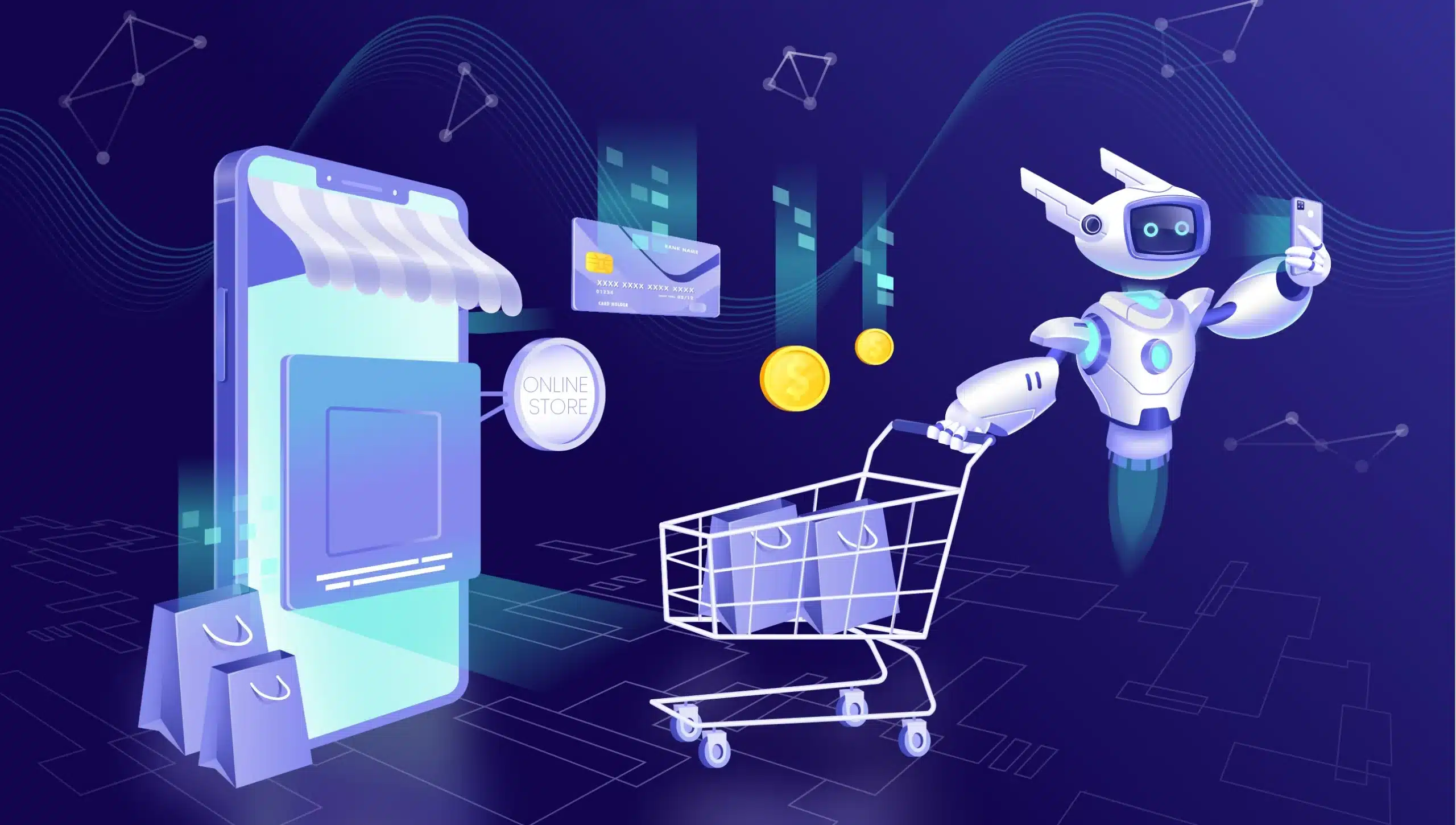
Artificial intelligence is making waves in every sector, and B2B commerce is no exception. The B2B buying and selling process is changing as a result of AI, which is also altering lead generation, order fulfillment, and customer service. Thus, let’s explore how AI is driving B2B commerce to new heights.
Personalized Product Recommendations
One of AI’s most remarkable contributions to B2B commerce is personalized product recommendations. AI algorithms analyze customer data, allowing businesses to understand customer needs and preferences better. Armed with this knowledge, they can provide tailored product suggestions, significantly increasing the likelihood of successful sales.
Chatbots: Your 24/7 Virtual Sales and Support Team
AI-powered chatbots are transforming customer interactions. These intelligent programs converse with customers in natural language, offering assistance, answering queries, and even sealing deals. Furthermore, chatbots not only streamline operations but also enhance customer experiences, making them an invaluable asset in B2B commerce.
Enhanced Security with AI Fraud Detection
In the realm of B2B commerce, where substantial financial transactions are the norm, AI plays a crucial role in fraud detection. AI algorithms scrutinize transactions, swiftly identifying and flagging potential fraudulent activities. This capability safeguards businesses from significant financial losses and bolsters trust within the B2B ecosystem.
Inventory Management with Precision
AI-driven demand forecasting revolutionizes inventory management. Businesses can optimize stock levels and prevent costly stockouts by leveraging AI-generated insights into product and service demand. This not only reduces costs but also ensures timely product deliveries, enhancing customer satisfaction.
Optimizing Pricing Strategies for Maximized Profits
AI doesn’t stop at inventory management. Besides, it extends to pricing optimization as well. With AI’s analytical prowess, businesses can fine-tune pricing strategies to maximize profits and stay competitive in the market.
Streamlining the Supply Chain: Efficiency Redefined
AI’s impact on B2B commerce doesn’t end with pricing or inventory. It extends to supply chain management, where AI-driven optimization reduces costs and enhances efficiency. In addition to this, businesses can streamline their supply chain operations, ensuring timely deliveries and improved overall performance.
The adoption of AI in B2B commerce is on a relentless upward trajectory. Recent statistics underscore its growing importance:
-
- According to Gartner, by 2023, a staggering 70% of B2B organizations harness the power of AI.
-
- Furthermore, McKinsey predicts that AI could contribute up to $1.5 trillion in value to the B2B economy by 2030.
-
- PwC’s study reveals that B2B organizations are already leveraging AI to enhance customer satisfaction, boost sales, and cut costs.
These statistics clearly emphasize that AI is not just a passing trend; it’s a transformative force in B2B commerce.
Embracing AI for Your B2B Commerce
If you’re a B2B business, the time to consider AI adoption is now. Its versatility offers numerous avenues for improvement, but the path you choose should align with your specific needs and goals. Here are some common applications of AI in B2B commerce:
– Personalized Marketing: Tailor your marketing efforts using AI to engage customers based on their interests and needs, driving better conversion rates.
– Supply Chain Optimization: AI can be used to optimize supply chain processes, cutting costs and increasing effectiveness.
– Fraud Detection: Additionally, shield your business from financial losses with AI-powered fraud detection.
– Innovation in Product Development: Moreover, use AI to create customer-focused goods and services and stay one step ahead of the competition.
– Customer Service: Offer 24/7 customer support through AI-driven chatbots, thus enhancing customer satisfaction and reducing support costs.
Conclusion
The role of AI in B2B commerce is still developing, there is no denying that it has the ability to transform operations, gain competitive advantages, and improve customer experience. B2B companies may create a future of innovation and prosperity by embracing AI.



